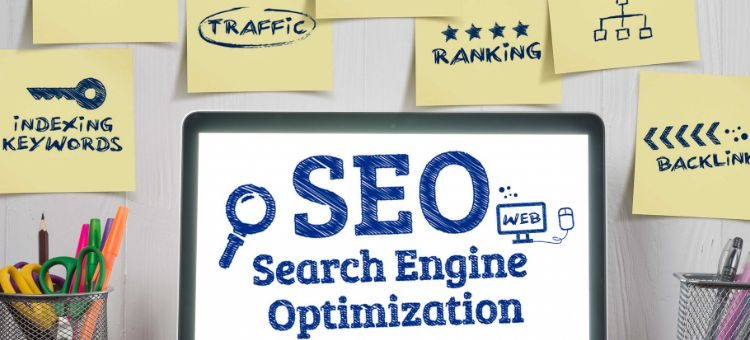The Ultimate Guide to Blog Indexing: Boost your SEO with effective strategies

If you ‘re an SEO expert in India, you know that having great content is just the first step. The next crucial task is getting your blog indexed by search engines. Blog indexing is essential for improving your website’s visibility and ensuring that your content appears in search engine results pages (SERPs). Without proper indexing, your blog posts may remain hidden, no matter how valuable they are. In this article, we ’ll explore what blog indexing is, why it matters, and how you can optimize your blog for better indexing and improved SEO.
What is Blog Indexing?
Blog indexing is the process by which search engines like Google discover, crawl, and include your blog content in their database. When a search engine indexes your blog , it makes your posts searchable for users, helping them find your content when they search for relevant keywords. If your blog is not indexed, it won’t show up in search results, and all your SEO efforts will go to waste.
In simple terms, blog indexing is the bridge between your blog content and potential visitors. Without it, even the best content may stay invisible.
Why Blog Indexing is Crucial for SEO?
As an SEO expert in India, here are the top reasons why blog indexing should be a priority for your website:
1. Improved Visibility on Search Engines:
When your blog is indexed, it has a chance to appear on the first pages of Google or other search engines. More visibility equals more potential visitors to your site.
2. Higher Search Rankings:
Blog posts that are properly indexed and optimized with the right keywords can rank higher in search engine results, driving more organic traffic.
3. Better User Engagement:
Indexed blog posts help users discover your content when searching for related topics, leading to more clicks, engagement, and time spent on your site.
4. Faster Crawling and Updating:
Search engines regularly crawl indexed pages to look for fresh content. If your blog is indexed correctly, Google can quickly update search results with your new posts.
How Does Blog Indexing Work?
Before diving into the indexing strategies, it’s important to understand the process search engines follow when they index your blog:
1. Crawling:
Search engines use bots (also called crawlers or spiders) to scan the web and discover new content. These bots follow links from one page to another, collecting information along the way.
2. Indexing:
After crawling, the search engine stores the collected information in a giant database called an index. This database helps search engines quickly find relevant pages when a user conducts a search query.
3. Ranking:
Once indexed, search engines rank your content based on various factors like relevance, authority, and user experience. Pages that rank higher on the SERP are more likely to get clicked by users.
How to Optimize Your Blog for Indexing?
Now that you understand the importance of blog indexing, let’s explore some key strategies to ensure that your blog gets indexed and ranks well in search engines:
1. Submit Your Sitemap to Google Search Console
One of the most effective ways to ensure your blog is indexed is by submitting your XML sitemap to Google Search Console. This tells Google exactly where to find your content and helps search engines discover your new posts faster.
Pro Tip: Regularly update your sitemap whenever you publish a new blog to keep Google’s crawlers in the loop.
2. Use Internal Linking
Internal links play a crucial role in helping search engines crawl and index your blog posts. When you link to other relevant pages or blog posts within your website, you make it easier for search engine bots to discover and index more of your content.
Use descriptive anchor text for your internal links and ensure they point to high-quality content.
3. Optimize Your Robots.txt File
Your website’s robots.txt file tells search engines which pages they are allowed to crawl, and which pages they should avoid. Ensure that your robots. txt file is configured correctly to allow search engines to crawl your blog posts and index them.
Pro Tip: Check for any unintended ” noindex ” directives in your robots.txt file that could be preventing your blog posts from being indexed.
4. Share Your Blog Posts on Social Media
While social media shares don ’t directly affects indexing, sharing your blog posts on platforms like Facebook, Twitter, or LinkedIn helps search engines discover your content faster. When users share links to your posts, search engines can follow those links back to your blog and index them.
5. Create High-Quality, Search-Friendly Content
Content is king when it comes to SEO. Write blog posts that are relevant, helpful, and engaging for your audience. Use the right keywords and ensure your content is optimized for search engines, which will increase the chances of your blog being indexed quickly.
Pro Tip: Research keywords related to your niche and naturally incorporate them into your blog post.
6. Optimize Your Blog for Mobile
Google prioritizes mobile-first indexing, meaning it primarily uses the mobile version of your website for ranking and indexing. Ensure your blog is mobile-friendly to improve your chances of getting indexed and ranking higher.
Common Blog Indexing Issues and How to Fix Them
As an SEO expert in India, you should be aware of common blog indexing issues and know how to fix them:
1. Blog Posts Not Being Indexed:
If your blog posts are not being indexed, check if there are any ” noindex ” tags on the page or if your robots.txt file is blocking the crawlers.
2. Slow Indexing Speed:
If Google takes too long to index your posts, try submitting your URL manually in Google Search Console, and ensure your website is not facing any crawling issues.
3. Duplicate Content:
Duplicate content can prevent search engines from indexing your posts correctly. Use canonical tags to inform search engines of the original content and avoid content duplication penalties.
Take Control of Your Blog Indexing for Better SEO
Blog indexing is a crucial part of SEO, ensuring that your content is visible and discoverable by search engines. By following the strategies mentioned above, you can significantly improve the chances of your blog posts getting indexed and ranking higher in search engine results. Whether you’ re an SEO expert in India or a business owner looking to improve your website ’s performance, proper blog indexing can make all the difference in your SEO success.
Frequently Asked Questions (FAQ)
1. How long does it take for Google to index my blog?
It typically takes anywhere from a few days to a few weeks for Google to index a blog post, depending on the frequency of your content updates and website authority.
2. What is the best way to make sure my blog is indexed quickly?
Submit your blog’s sitemap to Google Search Console, use internal linking, and share your posts on social media to help search engines discover your content faster.
3. Can I manually submit my blog for indexing?
Yes, you can submit your blog’s URL directly to Google through the Search Console to speed up the indexing process.
Take the time to optimize your blog for indexing and watch your website’s visibility and SEO performance grow!
Disclaimer: The opinions/views expressed in this article exclusively represent the individual perspectives of the author. While we affirm the value of diverse viewpoints and advocate for the freedom of individual expression, we do not endorse derogatory or offensive comments against any caste, creed, race, or similar distinctions. For any concerns or further information, we invite you to contact us at academy@enago.com
- By clicking here, I state that I have read and understood the terms and conditions mentioned above.





